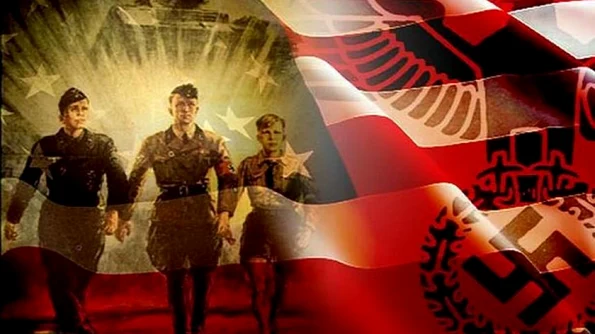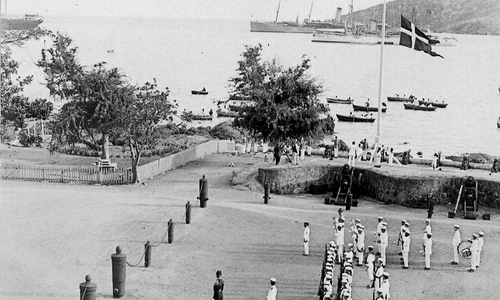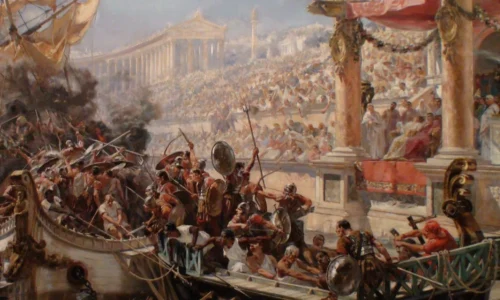
The American role in the Appeasement of Nazi Germany
In the 1930s, the policy designed by the leaders of the UK and France – appeasement-towards the Third Reich was not an easy task. In fact, it was so difficult and complicated that, in the end, it served to the exact opposite end it was put into function:it encouraged Germany to further break the traditional norms of conduct in international relations and to violate the sovereignty of independent states. Politicians such as Neville Chamberlain tried to convince themselves that, despite uncountable proof to the contrary, Hitler had fundamentally limited objectives in Eastern Europe and thus, they believed that appeasing him was better than a war or a chaotic situation in Mitteleuropa.
However, the European and international situation after 1936 was so complex and intertwined with domestic politics that it became increasingly difficult to influence the consolidation of the totalitarian regimes be they in the Old Word or in Asia. Nazi Germany, Fascist Italy and Imperial Japan were growing menaces to the international order and this was very much felt in Washington, despite its objective of leading an isolationist and neutral foreign policy. For the United States, the foremost danger was posed initially by Tokyo and not Germany, since it was very much possible for it to deliver a territorial attack against Washington.
Therefore, the American Administration decided to keep its traditional policy of not provoking the wrath of the Land of the Rising Sun, especially since the Congress limited the American military power to a certain inferior threshold. In order to change this vital situation, the US would need an intensive and extensive rearming process which would have been visible and effective only in a few years, as it was in 1941. Therefore, the US possessed virtually no real deterrent to check Japan, but its economic policies. Moreover, the American leaders saw their whole economy endangered, because Japan and Germany could single-handedly control or occupy East Asia/Europe which would translate into the exclusion of the US from those areas – Closed Door Policy at a time when the US adopted an Open Door Policy.
This way, the US kept its role as the main raw materials – especially oil-supplier to Tokyo up until the beginning of the Second World War so as not to determine a change in Japan’s policy. Yet Japan’s and Germany’s ideologies assumed that sooner or later, an inevitable war with the United States and the USSR, respectively, would break out which made them archenemies from the beginning. No matter how hard the US tried to appease Japan and Germany, Tokyo and Berlin prepared for and fixed on war even before a real reason of conflict appeared. Simply because another country would oppose their militaristic tendencies and hegemonic ascension or would think of protecting itself was enough to become the target of aggression.
Yet, from an early time, it was very obvious to Roosevelt that the Reich was the most powerful member of the Axis – which was, by all means, a propagandistic construct, but was not thought in these terms at the time – and thus, was a menace to the whole world, not only to a region as Japan was to East Asia. Or so Roosevelt thought. Both the UK and US seemed very eager to subtly detach Italy from the Axis and Germany, in order to determine Rome to retake its role as a pivot of European politics. However, in 1939, the English and American efforts seemed to have been for the better, since Mussolini decided to ask for a very long list of supplies Italy needed from Germany to even consider entering the war.
In the end, all that was left for Washington to do – in order to maintain its isolationist policy – was to try to influence London in its implementation of the appeasement policy towards Berlin. FDR and the American Administration would have liked to actually set the tempo and method of communication with the Reich, however, they found it virtually impossible without assuming certain responsibility for it and the only thing they could do to actually showcase their loyalties to the former Entente allies was to make declarations – as FDR din in October 1937 in his „quarantine” speech – which disapproved of the Axis’ actions:
"The present reign of terror and international lawlessness"had "reached a stage where the very foundations of civilization are seriously threatened, "he warned Americans that they would also be attacked. To prevent this, "peace-loving nations must make a concerted effort in opposition to those . . . creating a state of international anarchy and instability from which there is no escape through mere isolation or neutrality.""The epidemic of world lawlessness, "he declared, "is spreading. When an epidemic of physical disease starts to spread, the community approves and joins in a quarantine of the patients in order to protect the health of the community against the spread of the disease. . . . There must be positive endeavors to preserve peace, ". "America hates war. America hopes for peace. Therefore, America actively engages in the search for peace."[1]

Roosevelt and some of the members of his Administration understood that a change must be made in the way Washington managed its relations with the other countries, yet the Americans believed that a change in the Neutrality Legislation would actually bring the US closer to war. And this is where the problem of understanding the American Political System was for Hitler:he thought that a country with a neutrality bill and a reduced-in-size army could never be a real threat to Germany’s world domination plan. At the time, it was understandable, but Hitler failed to realize that when the vital American interests were endangered – such as the economic sphere of influence in Latin America – political issues and conflicts would be left aside.

The political circles in Washington perceived Chamberlain as an agent of the selfish interests of the City and thus, desired to sign an Economic Treaty which would, eventually, bring about the fall of the Sterling Area and ultimately of the British Empire – which was the objective of the US which were against imperialism and empires. Roosevelt thought that this treaty would signal to Berlin that a democratic bloc was forming against the Reich and its aggressive tendencies which would ultimately ruin both of its existing empire and its would-be hegemonic rule. If the US could not oppose and seemed to accept the dissolution of Czechoslovakia, after the Reichskristallnacht, the politicians in Washington decided to change their policy towards Germany from appeasement to deterrence.
London was late to do the same and only managed to understand its necessity on March, 15th, 1939 when Germany effectively violated the Munich agreement and the Wehrmacht marched into Bohemia and Moravia. Also, the incident created by the Romanian Minister to London Tilea brought in the forefront of the British’s thinking that the Reich would not stop and would only annex more and more territories in Eastern Europe and probably in the West and other parts of the world as well, if given the opportunity.
Therefore, the year 1939 brought about a new type of relation between the US and the UK. The further London was from Berlin, the closer it was to Washington. Yet, even on the day of September 3rdwhen the English declared war to the Nazis, the Americans were afraid that maybe London would strike an economic deal with Berlin which would prevent them from entering the economic market of the Old World.

It would appear that the US had a very important role in making the UK realize that as long as it will believe in the possibility of dealing honestly and realistically with the Reich, it will lose any chance of preventing a bad outcome or changing the status-quo. Only when London would change its policy towards Berlin with an aggressive one, based on deterrence, on actually showing the desire to use the military forces they possessed-despite the fact that the UK had only two divisions to send to the Continent in August – September 1939 – only then would the Nazis understand that they won’t get away with it as they did with the annexation of Austria or of Bohemia and Moravia. A good relationship between the Anglo-Saxon powers was key to the defeat of Nazi Germany and this was only apparent in the late 1938 and early 1939 to the British.
[1]Robert Dallek, Franklin D. Roosevelt and American Foreign Policy, 1932 – 1945, With a New Afterword, Oxford University Press, New York, USA, 1995, p. 148















